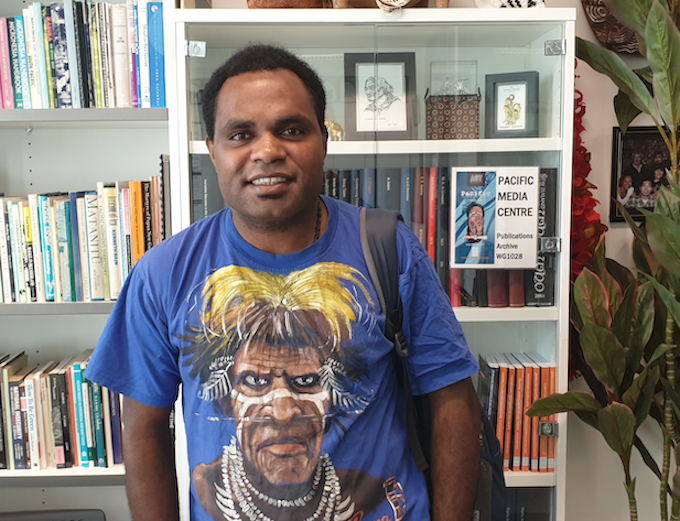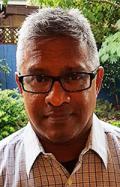
By Sri Krishnamurthi
AUCKLAND (Asia Pacific Report/Pacific Media Watch): A remarkable 120 West Papuan students – all on scholarships – are studying in New Zealand, says Laurens Ikinia, a postgraduate student at Auckland University of Technology.
All-in-all, there are more than 600 Papuan students currently abroad in the US, UK, Australia and New Zealand, says Ikinia, a masters student in communication studies.
READ MORE: Papua Highlands emergency school roll grows
“All of us are supported by the Papuan provincial government and we are spread right across the country in New Zealand all the way from north to south,” Ikinia told Asia Pacific Report.
“The scholarship has never previously been in such large numbers of students to go study overseas and be supported by the government.”
The idea to get students into overseas academic institutions was the brainchild of Lukas Enembe, governor of the Indonesian-ruled province of Papua.
“We are lucky to have our current governor, Mr Lukas Enembe, he is such a great leader and a visionary who made the decision to send Papuan students overseas,” said the 25-year-old Ikinia.
Education ‘way out’
“In New Zealand, we have 120 students, and across the world there more than 600 students.”
Education is the way out for West Papuan students and Enembe could see that, Ikinia said.
“That is one of the priorities he has put, because he believes we [West Papuans] come last in terms of community development [by Indonesia],” he said.
Ikinia, the student representative with the Pacific Media Centre, acknowledged the initiative as critical development move for West Papua in the future.
“We are looked-down upon. We might be a rich region but that is the reality, so our governor made a decision to send students overseas.
“Marginalisation is happening everywhere in West Papua and a major problem is education.
“So, we gain more knowledge from developed countries such as New Zealand, Australia and the US,” Ikinia said.
More students coming
“I feel more students should be coming to New Zealand next year because we are made to feel welcome here.”
But the repression “back home” struck a sad chord with him, particularly with enforced relocation of the people in the troubled regency of Nduga as internal refugees.
“Media reports are saying as many as 40 to 45,000 people are being relocated in Nduga, they have been moved to nearby towns or regions,” he said.
“Media reports suggest there are different reasons and as far as I am concerned people are being relocated because they want to find security.
“I don’t know the motivation for it, but people in the villages are told this is a dangerous place so you have to go to find a safe place,” he said.
Some media reports blamed the West Papuan Liberation Army and other reports say it was because of the Indonesian troops fighting the Papuan rebels.
‘Verifying the truth’
“it is difficult to know the truth because you don’t have independent news sources to verify what is going on,” said Ikinia, a teacher who completed an international business undergraduate degree at the Institute of Pacific United NZ in Palmerston North.
He hopes fundamental human rights are given precedence and that will contribute to peace in Papua.
“I hope that after getting my knowledge here I can contribute to the people back home,” he said optimistically.
Speaking frankly, he said his desire was to see the Indonesia government enter a dialogue with the people of West Papua.
“I hope the government could open their hearts and approach the situation in West Papua with a good heart and pure mind to solve the actual problem,” Ikinia said.




